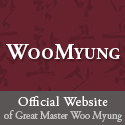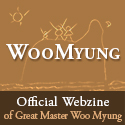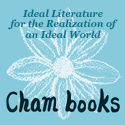Kiun Jung and Heesoon Seo
They had been married for over 30 years, but still considered themselves newlyweds. Several times a day they would call each other to talk about the chores, children and daily routines. While serving as the presidential education secretary and assistant secretary of the Ministry of Education, Kiun’s “gentle charisma” was widely known among his peers and public officials. Publicly, he had taken efforts in his work to create change through dialogue and cooperation. He was expected to balance his charisma and public appearance with his intimate home life. And in this time, despite the couple’s public view of perfection, a distance began to grow into a great and painful divide within their hearts. It was only after practicing Meditation that the couple found this distance growing smaller and their love for one another finding new ground.
For the first time in my life, my husband said “I’m sorry. Thank you.” – Heesoon
The way she best remembered him was a picture of a man wearing a hat from some bygone era that had been transported to the 21st Century. He never joked or said anything silly. He was very conservative and firm in his beliefs as a patriarch. He was a person who did not show any gaps in his character.
Despite the publicly admirable qualities of Kiun, Heesoon had a very difficult time with her husband before they started meditation. She would often feel what she could only describe as sadness emanating from a man steadfast to his devotion to his duties. She felt this most strongly while going about her housework and caring for her children and her mother-in-law. Almost on a daily occurrence she would find her voice of frustrations lost in a cold and unfeeling silence. Kiun had gradually turned distant and uninvolved.
“What can I do? Are you listening?” she would ask, merely to be dismissed on the grounds that the arguments would have no conclusive answers. Even her concerns regarding her relationship with her mother-in-law were deflected and called a personal issue rather than his concern. These arguments would end with the same reply many times over: “Regarding complaints with my mother, (your mother-in-law) talk with her directly.”
The results of these cold conversations gradually closed off Heesoon’s heart until she ultimately became silent herself. And as the constant responsibilities of daily life and work began to demand more the couple talked less. Over time they had very little to say to one another. It is a common story that many couples experience in their lives.
But after practicing meditation one day her husband began to change. He would later describe these moments fondly. He was falling in love once again.
It was 2002, about a week after doing this meditation over the summer, Kiun spoke from his heart.
“I am really sorry and thankful,” he said. At that time, Heesoon felt as if she was hearing the words for the first time. She describes feeling like a newlywed once more.
“I learned through this meditation, that everything I saw, heard, and experienced as I grew up became an immovable and heavy burden, a program that controlled me.”
Kiun began to understand that the act of recalling his upbringing and past widened his understanding of the root causes that shaped his worldly views.
“I came from a strict patriarchal family. And even from a young age, I was taught that a man should not go into the kitchen and that the mother should prioritize husband and son. And as I grew up with that doctrine, my mother had led me to believe that it was the wife’s job to serve her husband and mother-in-law. I had never questioned or doubted these life lessons. I never thought it was wrong to think all the housework was my wife’s job,” he recalled.
“I threw away my programming and thoughts so I could see the other person’s perspective.” – Kiun
“And it was only after I abandoned all of those programs and thoughts in my mind that I began to see things from my wife’s perspective. I realized how I had forced my own definitions of right and wrong onto my wife. When I realized how hard I made life for her I was able to become truly repentant and sorry,” he continues.
“Despite sharing the same work life, when I got home, I didn’t raise a finger to help. I would only watch my wife work. I didn’t help her. I even rebuked her when she complained. Through all this she wasn’t even able to confide in me, who should’ve been her closest confidant—her husband. I have wondered lately: how hard it must’ve been and how long she must’ve suffered. How much heavier was that burden on such a small frail person without anyone to rely on? The more I thought about it, the more I discovered how wrong I was and I was sorry. Coming face to face with her suffering has made me hurt as well,” Kiun explains.
“And now that same person, who never lifted a finger to help and who’s only words were demands for this or for that, has changed. These days, washing dishes and cleaning are the basics,” Heesoon adds.
“Even his hardened face with an ever-present stern look has changed. We often joke that his smiling face looks like an ugly doll. And the children have never before seen such changes in their father. A new joking dad, who was stern and scary before, now evoked a new curiosity,” she added.
“In reality, all my wife and children wanted was for me to be more attentive and to listen to their stories. They wanted warm words and to hold hands, the simple things in life. But I didn’t notice these things before. I had lived my life with the thought that living sincerely and working hard to succeed socially (raising my status) were the only things that were important. I had thought that these duties were my only obligations to my family.”
Kiun says he has found a connection with his family through meditation. In the past he had always maintained his role as the head of the family and had only been on the receiving end of his family. But these days, he has begun to unconsciously think of his family before himself and consider what his wife and children might need from him. After learning to abandon his past stereotypes, sense of duty and formality, Kiun said his life at work and home became easier and has felt his burdens become lighter. It was after this change that he began to recommend this meditation to his wife.
“Actually, I had harbored a sense of resistance towards my husband from some time ago,” Heesoon explains.
“So I never felt inclined to follow my husband’s recommendations. But after seeing the changes after meditation I began to wonder; If that person could change this much, I could also hope to find change in myself through this meditation.”
Heesoon has since taken part in the meditation Teacher Training Program.
“I had often rebuked my husband and told him he was self-centered, adhering only to his own views and perspectives. But after trying meditation for myself, I found that it was the same for me. My judging and discerning had always been from my standpoint and only my standpoint. And only after abandoning this image of myself was I able to understand more of my husband. It began to become clear that in order to accept people and things just as they are, I had to have a greater and bigger heart.”
If I hadn’t changed when I had through meditation, I would have had a divorce
Kiun explained, “I remember in the past when I came home with a tired body entering into the cold atmosphere of my home. There were times when my family would be congregated in the living room only to return to their rooms when I came out to greet them. It was during these times I had thought my wife lacked a sense of duty towards her husband. Unable to accept my wrongs I would often find myself angry with my family and believe myself to be without fault. Later when we looked back at these events my wife opened up to me and told me she had (at that time) given up on me and decided to live her life with only her children in her heart and mind. I find myself able to laugh at myself for my foolishness—if I hadn’t changed when I had through meditation, I would have had a divorce.”
Heesoon said with a smile, “We could’ve lived a life devoid of affection and love even if it hadn’t come to divorce. And although even now we are still busy and we don’t have much time to be with each other, we still understand what each other has in their heart and mind because our minds have changed. My life has completely changed after finding the origins of my mind and how they affected my life. Meditation has become a turning point in my life.”
Kiun says that he has finally gained trust with his wife and they have become lifelong partners – a couple again. He often tries to describe the new meaning of understanding one another to the relationship of young couples just starting their marriage.
“If you look at the word understanding, it contains ‘standing’ and ‘under.’ One can understand another person when they have a lower mindset that stands beneath the other. When I was able to lower myself and abandon the mind of patriarchal hierarchy I was able to better understand my wife. In order to obtain a low mind you must abandon all of the ego associated with yourself,” he points out.
“We can say we comprehend the true meaning of gratitude and happiness only when we abandon ourselves and become humble in our minds,” Kiun adds as the couple holds hands and smiles. They are grateful for being here and they are as sweet to each other as newlyweds.
Born in Jindo, Jeonnam in 1954, Kiun Jung graduated from Seoul Jungang High School and Seoul National University. He received a master’s degree in public administration from the Graduate School of Public Administration at Seoul National University in South Korea and a doctorate in philosophy (majoring in educational administration) from the University of Iowa in the US. After entering public office through the 19th administrative examination, he served as in the Office of International Education Cooperation of the Ministry of Education and Secretary General of Seoul National University.
He followed as the Presidential Education Secretary, the Ministry of Education and Human Resources Development Deputy Assistant Secretary and Seoul Metropolitan City Assistant Superintendent of education. He has served as the president of Dongshin University since July 2006, and is currently the president of Suwon Women’s University. He is also active as a director of EBS Education Broadcasting and vice – chairman of the Whole Person Education Association. Heesoon Seo was born in Seoul in 1957 and graduated from Daejeon Girls’ High School and Sungkyunkwan University. She received a master’s degree in education from the Graduate School of the University of Seoul. She has served as a teacher and vice principal, and is currently serving as a faculty member. She married Kiun Jung in 1983 and has one son and one daughter. She also experienced meditation through a teacher training program.
Source: www.meditationlife.org


















